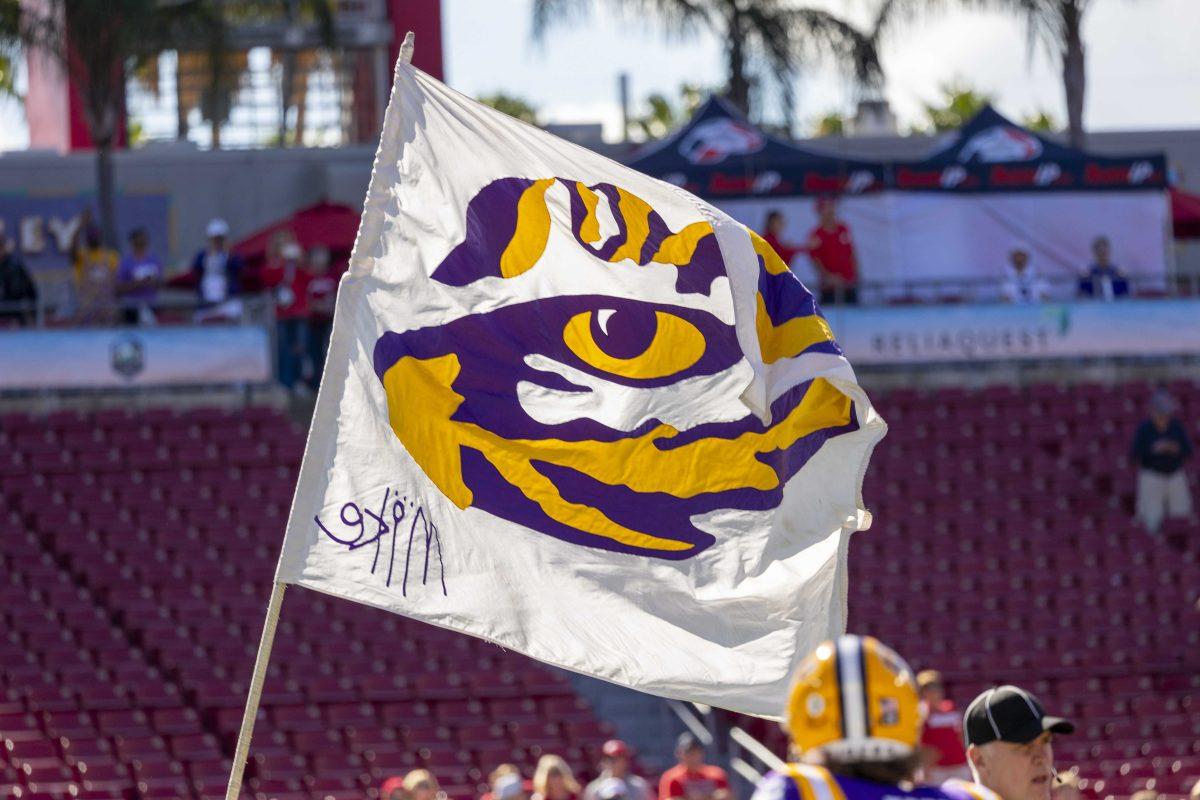The two biggest conferences in the NCAA just joined forces, and their new partnership could send shockwaves throughout college athletics.
As soon as the SEC and Big 10’s advisory group was announced, questions began to arise, and SEC Commissioner Greg Sankey was prepared to answer all of them.
“We’re going to try to take that responsibility of leadership and see if we can develop some ideas that can help us,” Sankey said on The Paul Finebaum Show.
To say that the last “alliance” between NCAA conferences was a complete failure would be an understatement. In 2021, following Texas and Oklahoma’s announcement of joining the SEC in 2024, the ACC, Pac-12 and Big 10 made a partnership of their own—one to counteract what they felt was a power move by the SEC.
But nearly as swiftly as he agreed to a partnership, Big 10 commissioner Kevin Warren infamously turned around on his handshake and poached USC and UCLA, effectively marking the beginning of the end of the Pac 12.
Sankey doesn’t want any comparisons to “alliances” of the past, stating, “That’s a bad word. We can’t use that word.”
“This effort to form an advisory group is not about the NCAA,” Sankey said. “We need a healthy national governing body. To the extent we can contribute to that in any way, that explains more what our focus will be.”
Since the advisory group has been formed, the NCAA just recently announced that the College Football Playoff will follow the approved 5+7 model, which was unanimously approved by the College Football Playoff Board of Managers, giving the five highest-ranked conference champions an automatic playoff bid, followed by the next seven highest-ranked teams in the AP Top 25.
While the 5+7 model could be changed in the future, as the format is only approved through 2026, the SEC and Big 10 were very pleased with finally getting answers to their questions about the uncertainty of the College Football Playoff.
Even with that massive announcement, the College Football Playoff still needs to find a TV deal.
On Feb. 20, ESPN agreed to a $7.8 billion extension to televise the College Football Playoff through the 2030-2031 season. The deal is precisely what the SEC and Big 10 were hoping for, and to see that their schools will most likely be fairly represented in the College Football Playoff is why they partnered in the first place.
So, with the College Football Playoff’s format and TV deal finally decided, what’s left for the SEC and Big 10’s partnership?
The NCAA has been investigating the University of Tennessee since last summer as the school reportedly committed over 200 individual infractions during former head coach Jeremy Pruitt’s tenure.
Tennessee was placed on a five-year probation and can give out 28 fewer scholarships per year. It was also fined nearly $9 million, which the NCAA believes would’ve been the total loss if the program missed the College Football Playoff in 2023 and 2024.
The attorney generals of Tennessee and Virginia filed an antitrust lawsuit against the NCAA in response to the investigation into Tennessee, challenging the ban on using name, image and likeness compensation in the recruitment process.
On Feb. 13, attorneys for the NCAA, Tennessee and Virginia met in federal court for a preliminary hearing regarding the lawsuit. The Tennessee and Virginian legal team argued against restricting athletes’ knowledge of their NIL options before committing, which could result in athletes making uninformed decisions on which school they’ll succeed at most.
“It’s difficult for attorneys to figure out what they can or cannot do with NIL, and we’ve had four years of college and three years of law school,” Tennessee Attorney General Johnathan Skrmetti said in a press conference following the hearing. “If you’re a high school kid trying to figure this out, you’re going to have an extremely difficult time, and that’s a big problem, because the consequences are so severe.”
The plaintiffs also argued the unfair advantage that some athletes have at certain schools compared to others.
“If someone is playing football at Harding University, their NIL opportunities are probably a lot different, than their NIL opportunities at, let’s say, the University of Tennessee, and that’s just a result of the market and the fan following,” Skrmetti said.
“So, where you go to school, is going to factor into your NIL value, but you can’t pay someone just to go to school, that’s pay to play. It’s a weird distinction for sure, but that’s where the law is.”
LSU has thrived in the NIL space, having some of the top college athletes and rising to become one of the biggest collegiate brands in the country. LSU’s program, NILSU, helps its student-athletes navigate the NIL landscape.
Amazon is also paying LSU a million dollars for a Prime Video docuseries called “The Money Game,” which will follow Tiger royalty such as Olivia Dunne, Angel Reese, Jayden Daniels and Flau’jae Johnson.
To say that LSU has done well in the NIL space would be doing them a great disservice, but if Congress steps in and gets involved, the entire NIL world could change forever.
“What keeps me up at night is people thinking I have a set of magical answers,” Sankey said. “There are magical answers to our historic realities that have worked really well in college sports for decades, but now we’re being challenged in different ways—challenged within our own campus settings, challenged in courts, challenged in state legislatures and challenged in Congress.”
On Friday, a federal judge granted an injunction that freezes all NIL rules until the lawsuit is settled or goes to court. The NCAA’s investigation into Tennessee has been halted as booster-funded NIL groups can now communicate with high school recruits and transfers in Tennessee and Virginia.
The future of NIL, LSU and the rest of the NCAA is now up in the air.
“Pressures are mounting,” Sankey told Yahoo Sports. “We’re going to have conversations about what might a path forward mean for college sports.”





